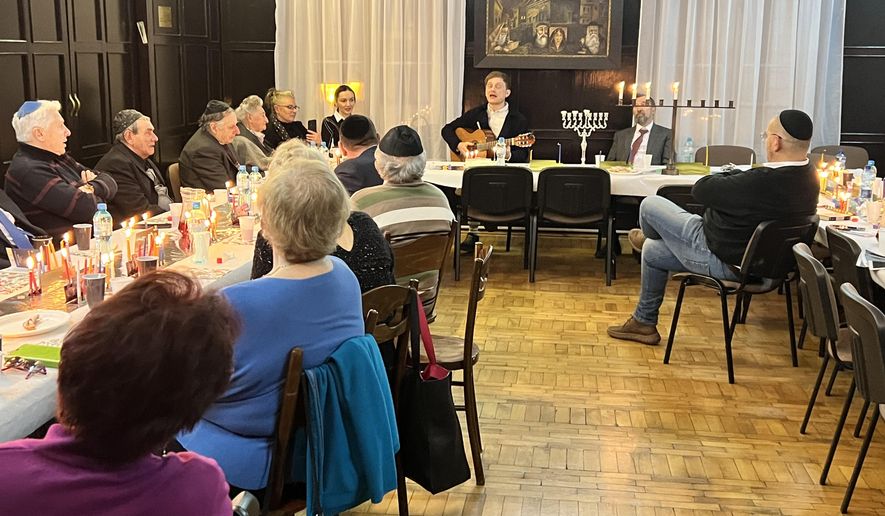While millions of Jews around the world are lighting menorahs nightly this week to commemorate an ancient miracle, those in war-ravaged Ukraine are seeking another kind of light.
Russian strikes have cut off electricity to towns across the country, but gasoline-powered generators donated by groups around the world are giving suffering Ukrainians light and heat.
“The generators are everywhere,” said Inna Vdovichenko, external affairs director for the American Jewish Joint Distribution Committee (JDC) in Odesa, Ukraine. “We have been experiencing very bad power cuts that last from a few hours to a few days, in our houses and apartments. … You kind of lose hope.”
But community centers, powered by the generators, “are full of light and warmth because there are people who are happy to be there. The staff is happy to see the participants of the programs and the participants are happy to see the staff,” she said.
The generators are just some of the aid provided by the American Jewish community for 43,000 people in Ukraine and more than 40,000 refugees as Russia’s war against Ukraine enters its 11th month, relief officials said.
“I don’t think any of us imagined that the war would be going on this long or would be this bitter,” said Eric Fingerhut, president and CEO of the Jewish Federations of North America. The federation and its member groups are among the organizations funding JDC programs.
SEE ALSO: Putin’s war is a disaster, but peace talks not in the offing, says CIA chief William Burns
Mr. Fingerhut noted the rituals of Hanukkah center around celebrating light, needed not only in winter everywhere but especially in Ukraine, where power cuts are constant.
“The theme of bringing light into the darkness is very, very strong,” he said. “This is one of the most recognized rituals in Jewish life. It links them to Jews around the world who are all lighting the same candles, saying the same blessings and singing the same songs.”
Relief efforts include more than 800 tons of humanitarian aid in Ukraine and nearby, as well as long-term care for thousands of Jewish refugees, the officials said.
Ms. Vdovichenko said donations also help fund programs for seniors — including a 98-year-old veteran of World War II who came to a senior’s event with his wife — as well as for children and young adults with special needs.
JDC support, she said, meant 100 families could gather for a spiritual retreat called a “Shabbaton,” notable not only for taking place during wartime, but also for being one of the first such gatherings since COVID-19 restrictions took hold.
A female participant told Ms. Vdovichenko of being able to stay in warm rooms with heating. She said they were able to eat hot food, but most importantly could reunite with others after months of isolation.
SEE ALSO: Lawmakers unveil $1.7T bill to avoid shutdown, boost Ukraine
In Odesa, the group’s charity arm serves about 7,000 members of the Jewish community in an area roughly the size of Israel. The JDC also helped 13,000 Jewish community members evacuate from Ukraine during the 10-month-old war.
Since the Russian invasion of Ukraine in February, Jewish Federations say they have raised $84.2 million for Ukraine aid. Donations support emergency operational costs, temporary housing and transportation costs, security, humanitarian support and trauma and medical relief, as well as immigration and absorption in Israel for Ukrainian Jews who choose to relocate.
“It’s just been an extraordinary effort, and [a] statement of generosity,” Mr. Fingerhut said. “Most of that money — almost all of it — has been deployed into the region, and to bring people out, support them as refugees, and to continue to bring humanitarian relief into Ukraine.”
Said Ms. Vdovichenko: “Hanukkah is a real holiday of light and miracles. It is a miracle [that] we are continuing to work, to support, and we hope for more miracles to come.”
• Mark A. Kellner can be reached at mkellner@washingtontimes.com.




Please read our comment policy before commenting.